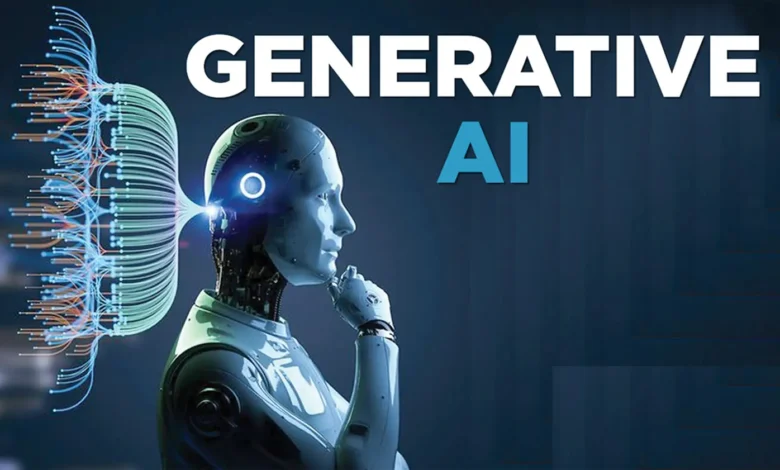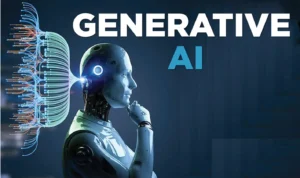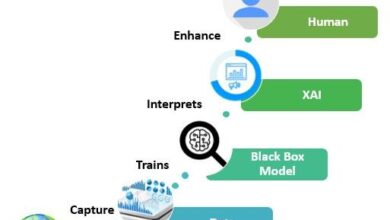13 Major Tech Trends That Will Shape 2024 and 2025
13 Major Tech Trends That Will Shape 2024 and 2025

13 Major Tech Trends That Will Shape 2024 and 2025
In a world evolving at an incredible speed, technology has become the driving force behind change in all aspects of life. From artificial intelligence to augmented reality, and from the Internet of Things to quantum computing, technological advancements are reshaping the future. But what are the key technology trends that will dominate 2024 and 2025? And how will these trends impact our daily lives and businesses?
In this article, we will explore 13 of the most important technology trends shaping the near future. We’ll provide you with a comprehensive overview of each trend, along with practical examples and useful links to reputable sources to help you understand these technologies better.

1. Generative AI
Generative AI has become one of the most exciting technologies in recent years. With tools like ChatGPT and DALL-E, AI can generate high-quality text, images, and even videos.
Key Applications:
- Automated content creation for marketing.
- Software and design tool development.
- Enhancing user experience in smart applications.
For more insights into AI’s impact on digital marketing, check out this article.
2. Quantum Computing
Quantum computing is a game-changer in the computing world, enabling data processing at unprecedented speeds.
Benefits of Quantum Computing:
- Accelerates big data analysis.
- Enhances encryption and digital security algorithms.
- Aids drug development by simulating complex molecules.
To deepen your understanding of this technology, explore this comprehensive guide.
3. Internet of Things (IoT)
With an increasing number of internet-connected devices, IoT has become an integral part of our daily lives.
Practical Applications:
- Smart Homes: Remote control of lighting and heating.
- Smart Cities: Improved traffic and energy management.
- Healthcare: Remote patient monitoring.
For more on IoT applications in healthcare, check out this article.
4. Augmented Reality (AR) and Virtual Reality (VR)
AR and VR are revolutionizing user experiences across education and entertainment.
Key Uses:
- Employee training in virtual environments.
- Development of immersive interactive games.
- Enhancing online shopping experiences.
5. Blockchain and Decentralization
Blockchain technology is the backbone of decentralized applications, including cryptocurrencies and smart contracts.
Advantages of Blockchain:
- Increases transparency in financial transactions.
- Strengthens data security.
- Powers decentralized applications like DeFi.
6. Automation and Robotics
Automation is boosting efficiency and reducing costs across various industries.
Examples:
- Industrial robots in manufacturing.
- Office automation systems.
- Surgical robots in healthcare.
7. Renewable Energy and Green Technologies
With growing interest in sustainability, green technologies are becoming a fundamental part of the energy future.
Key Developments:
- Improved solar and wind energy efficiency.
- Higher-capacity battery technology.
- Smart recycling technologies.
8. 5G and Ultra-Fast Connectivity
5G networks will continue to expand, offering faster and more stable connectivity.
Benefits of 5G:
- Enhanced online gaming experiences.
- Empowering smart cities.
- Accelerating IoT adoption.
9. Advanced Cybersecurity
As cyber threats increase, cybersecurity technologies are becoming more sophisticated.
Trends in Cybersecurity:
- AI-powered threat detection.
- Stronger encryption systems.
- Improved personal data protection.
10. Biotechnology and Genetic Engineering
Biotechnology is making significant advancements, particularly in medicine and agriculture.
- Development of gene therapies.
- Enhanced agricultural crops.
- Tissue and organ engineering.
11. Hybrid Cloud Computing
Hybrid cloud computing offers greater flexibility in managing data and applications.
Advantages:
- Improves storage efficiency.
- Reduces operational costs.
- Strengthens data security.
12. Smart Education Technologies
Smart technologies are transforming education into an interactive and personalized experience.
Examples:
- Online learning platforms.
- AI-driven assessments.
- AR applications in classrooms.
13. Financial Technology (FinTech)
FinTech is rapidly evolving, reshaping the financial sector.
Key Trends:
- Digital currencies and online payments.
- Personal finance apps.
- Smart investment platforms.
Conclusion
In a rapidly changing world, technology remains the key driver of progress. From AI to quantum computing, and from IoT to FinTech, these trends are shaping our future. We hope this article has given you a comprehensive look at the most important tech trends for 2024 and 2025.
Join the Conversation: Which of these trends do you think will have the biggest impact? And why? Share your thoughts in the comments!




